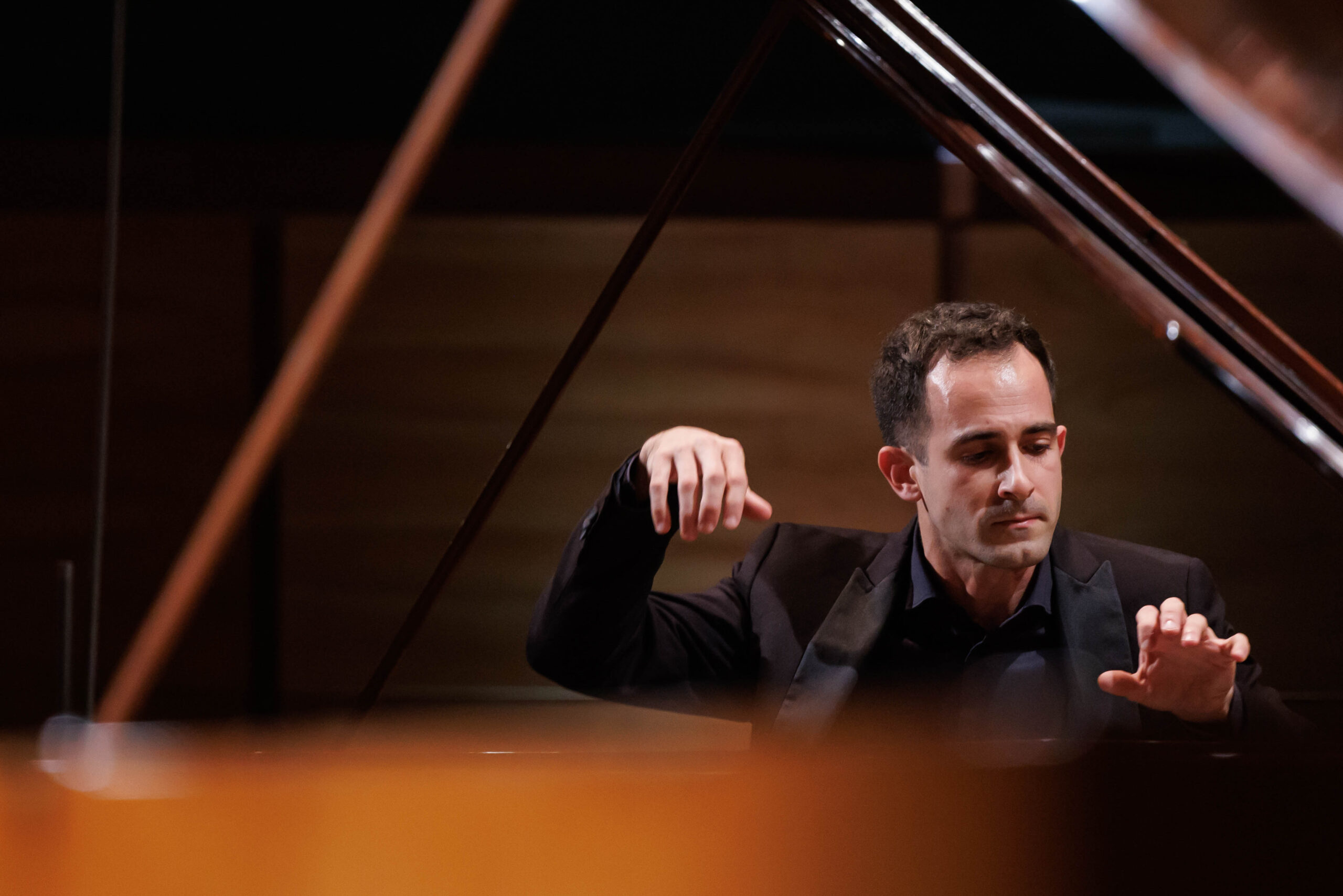
How did you first delve into the world of the fortepiano, and what inspired you to specialize in this particular instrument?
Fortepiano was for me a slow discovery, together with historical keyboards in general. My attraction started with both old recordings, where one could listen to pupils of Liszt and Brahms performing in a style that is nowadays almost lost, as well as with a strong love for Bach and Handel. The interest in Baroque music made me discover the movement of Historically Informed Practice, and the older generation of performers inspired and directed me towards an interest in historical pianos.
Compared to the modern piano, what do you find to be the most intriguing differences of the fortepiano, and how do these nuances influence your interpretative approach?
Well, I perform regularly also on the modern piano, being very keen on twentieth-century music, and I think that historical pianos can give a lot of perspective to the performers. One can, of course, try (and should!) to be as informed as possible regarding performance practice when playing older music on a modern piano, but the historical instruments help to understand how some details were especially conceived in a certain way because and thanks to the instrument. When trying some Classical repertoire on Viennese fortepianos, for example, the performer can understand how the levels of dynamics of the keyboard between bass and treble are really different from modern pianos, and this would surely bring different interpretative solutions. This is just one of many examples that one could make, and every fortepiano is very different, so one can explore repertoire on many pianos from the time it was composed without ever getting bored.
Embracing historically informed performance, how do you incorporate this practice into early music with your fortepiano, and what relevance does it hold in today’s musical landscape?
Playing a historical piano without trying to study the sources and generally having a historically informed approach makes no sense, in my opinion. The combination of using historical instruments together with the understanding of the sources is the key solution to embrace the context around a given musical work. I think that embracing the study of the sources and the practice on historical pianos can be really inspiring for any curious performer.
HIP and historical pianos are nowadays my main motivation to play and perform pieces that have already been played and recorded many times: despite the fact that surely a good performance is worthy on any instrument, having the chance of exploring mainstream repertoire on the original instruments is for me a source of great inspiration and curiosity.
I think that nowadays we are at a point where almost everything has been done, regarding especially the piano repertoire from the late eighteenth and nineteenth century. Most pieces have been played, recorded, and recorded again; studying them again to be performed on historical instruments is proving to be giving a new face to very well-known repertoire, and it is also motivating the research on forgotten repertoire and composers.
Within the fortepiano realm, who are your major influences and inspirations, and how have they shaped your development as a fortepiano specialist?
I think that my main inspirations come actually from orchestra repertoire, and conductors. When I was younger my main motivation to discover the early music approach was definitely the approach of N. Harnoncourt, both in performance with his orchestra and ensembles and with modern orchestras. I really liked and still like and respect a lot the fact that most of his performances were at the same time trying to be correct in terms of philology but also passionate, inspired and full of life.
Delving into the fortepiano world, what specific aspects captivate and motivate you the most in your ongoing artistic journey?
I would say that one most important aspect about fortepiano performance compared to the modern piano is how certain repertoire (from any time, from Mozart and C.Ph.E Bach to Brahms and Tchaikovsky!) works on fortepiano: if on a modern piano we can give all our powers with performances of Rachmaninoff, Prokofiev, etc, sometimes we have to be more controlled for the Classical repertoire and some of the Romantics. I would not say that we have to restrain ourselves, but sometimes I found myself being too loud or too much even for an orchestra, during a Chopin Concerto or similar repertoire. On the historical pianos, on the other hand, one really can always see how the composers tried to exploit the instruments to all their possibilities, in terms of volume, possibilities of articulations, use of the pedals, etc. This fact makes you discover so much more than the usual performance on a modern piano, and it helps to enrich your tonal palette.
Can you share a memorable experience, notable challenge, or amusing anecdote you’ve encountered in your career as a fortepiano specialist?
Something that happens quite often is experiencing problems with the action of the piano just before a concert! Maybe because of moving the instruments in place, or any other cause, recently I had a slightly damaged hammer to be reglued just before playing; other times one has to fix again a string that doesn’t hold tuning; another time a screw literally dropped from the lyra of the pedals during a four-hand performance, so we had to screw it back in between movements of the piece that we were playing. For this reason, it is surely better to be prepared to solve problems, because it is really worthy: my first time ever playing a Chopin piece (it was the Fantasia op. 49) on a Pleyel piano was a really incredible experience; that time I really couldn’t foresee how good and intense the sound of that piano could have been, and it was a truly exhilarating moment.
In the context of basso continuo and chamber music, how do you approach collaboration with other musicians, and what role does the fortepiano play in these settings?
Again, I think that fortepiano really gives perspective to all performers. Especially for the early Classical repertoire, up to the first Beethoven, one can see how the levels of dynamics and volume are really different from performances with a modern piano, and this becomes a great challenge to find good solutions towards certain musical goals. The different tuning temperaments can also give a lot of inspiration (…as well as problems!) to chamber music performances, and in general the fact that each piano has a very specific tone, compared by the standard “good sound” of a modern piano, makes every performance an act of curiosity, research and challenge, which I find extremely motivating. I currently enjoy performing, experimenting and researching on Romantic repertoire, which is still quite a new field in HIP and which I think will become very important in the future.
Could you share some insights into your current and future projects as a fortepiano specialist?
In the last couple of months, I have been playing a lot of Chopin (occasionally also on modern instruments), and I have just recorded a Schumann-Schubert album on a Viennese piano for Accento7, which was a great and very enjoyable challenge. My next project, starting from March, will feature the Diabelli Variations, both the op. 120 by Beethoven and some of the variations from Vaterländischer Künstlerverein, with composers such as Liszt, Hummel, Czerny, as well as some newly composed music for fortepiano.
Lastly, could you recommend three fortepiano albums that you find particularly noteworthy, and nominate the next interviewee for this series?
I will rather mention three specific pieces that I listened to recently again and that I find very inspired performances: the Sonata in A flat Major Hob XVI46 by Haydn, recorded by B. van Oort, the Sonata op. 54 by Beethoven, in the interpretation of R. Brautigam, and the Double Concerto for violin and piano by Mendelsshon in the interpretation of K.Bezuidenhout and G. von der Goltz. All these three recordings showcase lively performances and very communicative interpretation, and of course it is worthy to listen to the entire albums!
As per the next interviewee, I will name the fortepianist Els Biesemans, a performer whose recordings I discovered recently and that are a great source of motivation and inspiration for me.
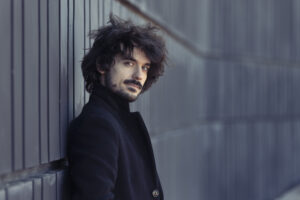
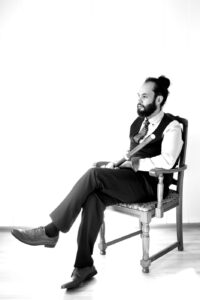
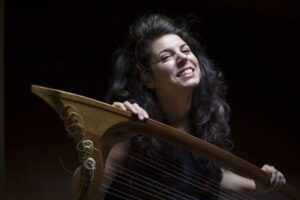
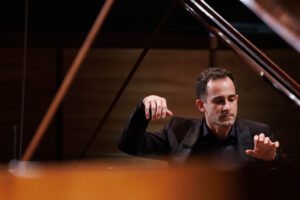
Danilo Mascetti is one of my favourite fortepiano performers, his works on Schubert and Schumann are quite amazing!
100% recommended, check him out if you like historical informed practice